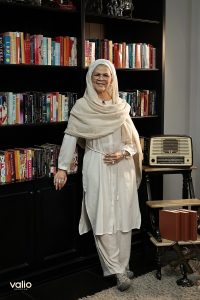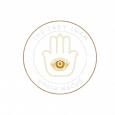 I admit I had the fortune of loving my father, the late Reverend Teasley, and feeling loved by him. I also date my fascination with the divine back to my father. There are many ways this fascination could have taken shape, but for me it led to the experience of religious diversity as an element of the global community of human beings that has never abated.
I admit I had the fortune of loving my father, the late Reverend Teasley, and feeling loved by him. I also date my fascination with the divine back to my father. There are many ways this fascination could have taken shape, but for me it led to the experience of religious diversity as an element of the global community of human beings that has never abated.
Like others, you might ask: if I feel so akin to diversity, why am I a devotee to only one of them: Islam? Some question this by way of offense to Islam. Others are genuinely curious. This curiosity takes two forms. Either they are interested in my personal location within Islam, as in why are you Muslim? Or they are interested in why stop my quest for diversity and get stuck where I am clearly busy detangling the manifestations of Islam from their patriarchal moorings?
My answer is quite simple. Islamic thought brought me peace of mind, especially about the greater workings of the universe and my tiny, tiny part within it. Islamic thought gave me the language to understand (a/my) reality. Quite a handy facility if you think about how long humans have pondered the great existential questions: Who am I; Why am I here; and What is the purpose of life?
No, I will not pretend to answers here.
I am pretty wedded to those who say it is the quest itself that brings answers. Life is a journey of inquiry. If you cease to inquire of life, I would contend life ends. You may not stop breathing, but that without meaning, life is not worth much. I even concede that some human beings are content with simpler answers to these questions (than perhaps would satisfy me). Their lives are no less meaningful. We are all different, and people have different levels of satisfaction in their quest. From a whole slew of levels, my own quest is legitimate for me because I am who I am and not you, or some else.
Instead, this blog is about a recent reading of a critical examination of my exegetical work on the Qur’an from a female-centered perspective. While the details of this critical examination are exhaustive (and exhausting), one thing came to my mind in reading it: how privileged I am to have been raised by a loving father who believed in and dedicated his short life to a God of love. Since this was long before I knew about Islam, and then after spending quality time practicing Buddhism—with no-God, my idea about God is not so narrow.
In my writings and public speaking, I reflect this personal perspective and experience by using multiple words about the Sacred, the Divine, the Ultimate, God/Goddess/Allah. I definitely use them interchangeably and none gets (me) stuck in any one attribute. All terms point beyond themselves as symbols in the human symbol-making systems, language.
This problem was addressed extensively in Islamic discourses known as Kalam: the relationship between the Ultimate and language systems. It was also never resolved once and for all, like the answers for those existential questions. I like that. I still grapple with it. If language is all we have to consider our notions of the divine, are we perhaps stuck in an endless cyclone of possibilities? Yes. Absolutely. To embrace that, is an act of faith, critical for those who hold any merit to the relationship between human reasoning and understanding or knowing the Divine, in the first place.
There is, however one aspect (Arabic sifah: description or attribute) of God, that I have a particular affinity to; and that is Love. I chose the name Wadud to reflect that sifah: Al-Wadud, The Loving. As I said, I was born into this notion of God through my father, a Christian, who was also a loving father, a man of God. A man with such moral consistency I never had to deal with the endless layers of hypocrisy that seems to have befallen every “religion” practiced by humankind. (I had to deal with that much later in my life…)
Since the idea of God as Love impacts my total experience of God, and my rational thinking about God, at times I encounter my Muslim brothers and sisters who have no trust or experience with this aspect but have a more severe idea about God and find that severity impacts everything they do and think, including way they analyze texts, contexts, Islam and Islamic thought.
In Islamic cosmology, there are 99 attributes or sifat. Some are Jalal, about God’s absolute-ness; and some are Jamal, about God’s intimate connection to creation. Omniscient, Sublime, Powerful, Forgiving, Loving, Compassionate, are examples. Some people, I guess, have no capacity to see or experience certain attributes of the Jamal type because they are stuck in a very severe God-idea. This impacts the way they read divine communication or revelation. Since it can only reach humans through a human communication medium, that is language, some readers can only see the REAL God when the texts takes on the severe qualities.
Although the Qur’anic revelation, for example, spans the breath of the attributes and more, some cannot read it when the texts take on compassion and intimate divine qualities. Such readers consider these verses only tangential, circumstantial, and even insignificant: not “God-like” enough. Why else would they then pin meaning to only one side of God, the side that more closely reflects their own tendency towards the severe? I admit, I read through Love and Compassion like Sufis or Muslim mystics have across the long path of Islam.
So when it seems that I prioritize these passages, I do so, on purpose. I am not blinded by my reading, I am guided by it. I do not overlook the existence of more severe language acts in the Qur’an but I am not confined to those to such an end as to throw out the baby with the bath water. I accept that they are there but I decline to let them rule my way of being in the world.
amina wadud is Professor Emerita of Islamic Studies, now traveling the world over seeking answers to the questions that move many of us through our lives. Author of Qur’an and Woman: Rereading the Sacred Text from a Woman’s Perspective and Inside the Gender Jihad, she will blog on her life journey and anything that moves her about Islam, gender and justice, especially as these intersect with the rest of the universe.
This article is already published in The God of Love by amina wadud (feminismandreligion.com)
